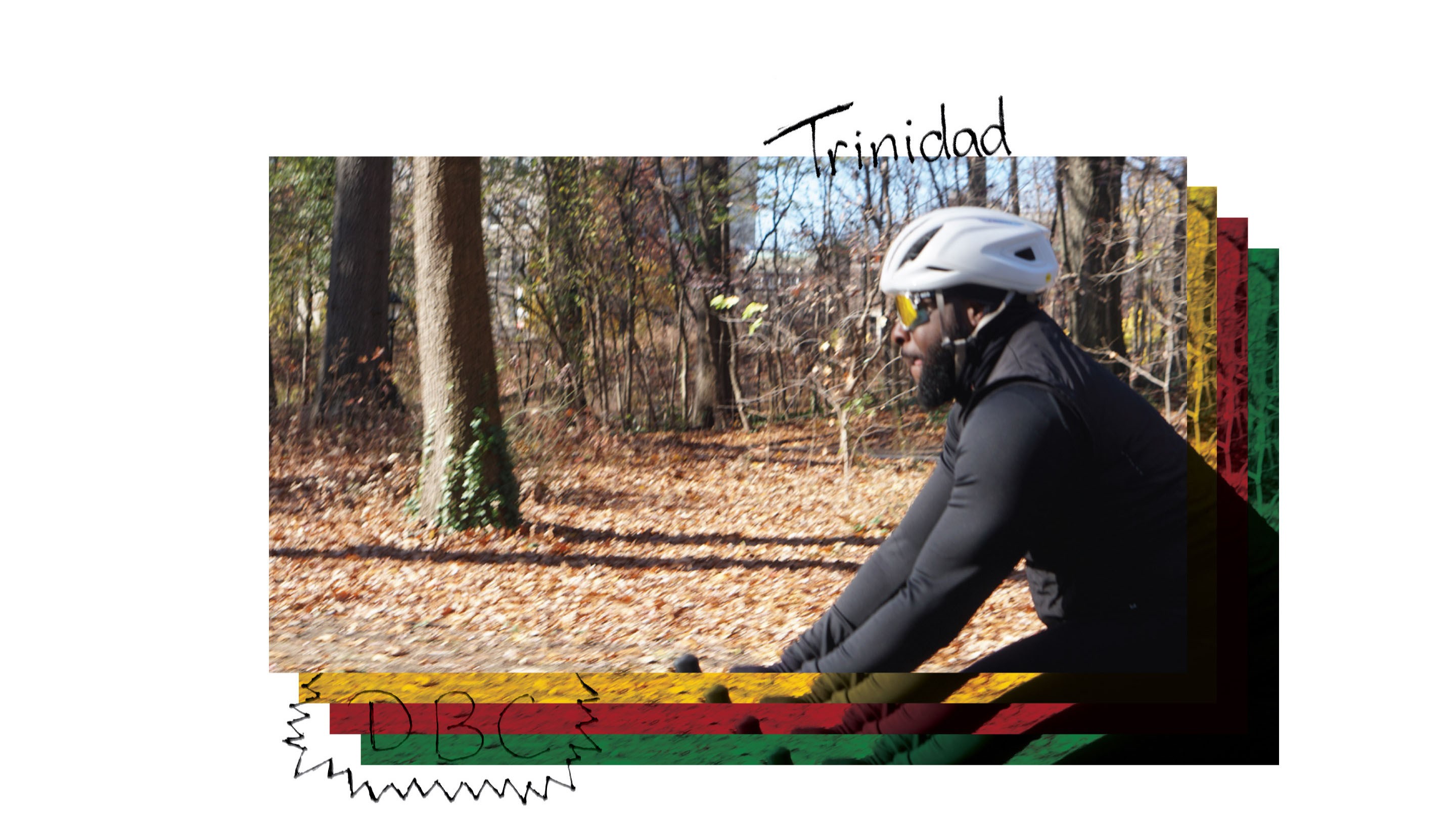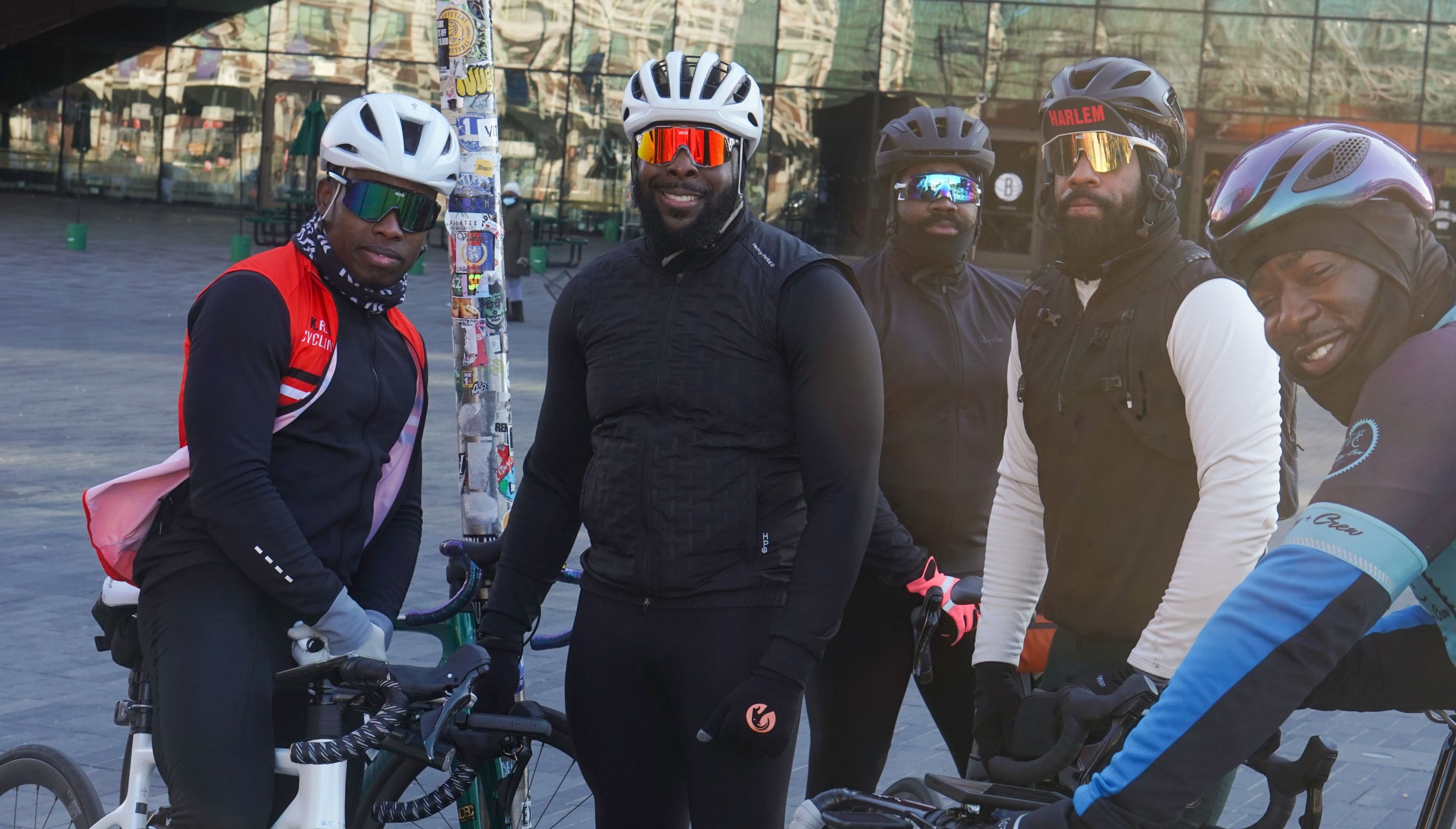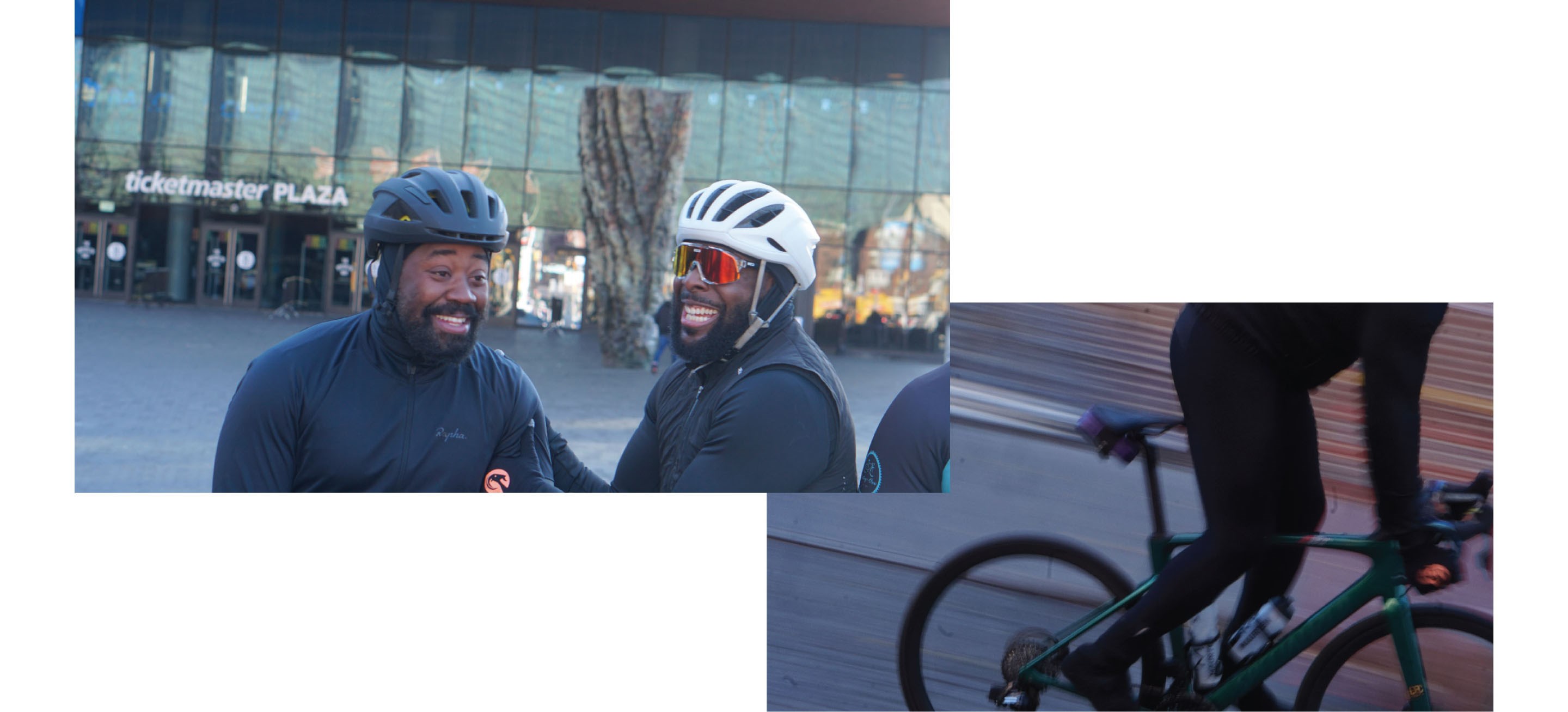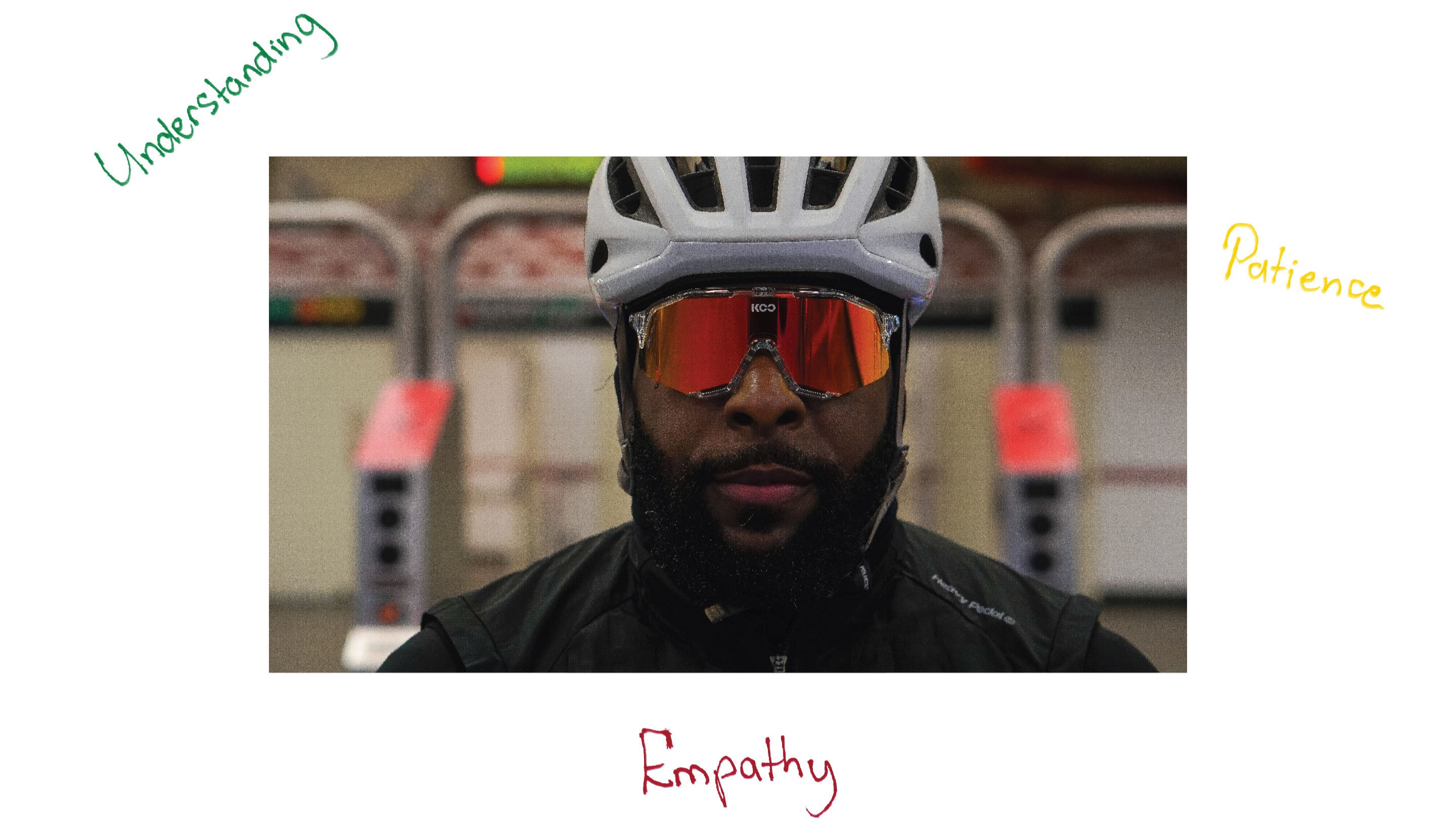MAKESI DUNCAN
Makesi Duncan, founder of Dad Bod Cycling, shares how his heritage and culture are woven into every pedal stroke. For him, cycling is not just about riding a bike—it’s a powerful catalyst for building community and promoting representation.
Cycling has undoubtedly deepened my understanding of who I am, particularly as a Black man. There’s an undeniable feeling that cycling isn’t something “I’m supposed to do.” When you look at the dominant figures in cycling, I don’t fit the mold. Standing at 5'11" and weighing 230lbs, I’ve received my fair share of comments. One of the most memorable came from someone telling me that I should be an NFL linebacker, not a cyclist. Instead of letting these comments discourage me, I’ve used them as fuel to drive my success in the cycling world. I’ve come to realize that my physicality and my journey are not barriers, but symbols of strength and resilience.
I carry the heritage of my home country, Trinidad, with me on every ride. Every one of my bikes has a Trinidadian flag attached to it, not just as a personal token, but as a conversation starter. It’s my way of sharing the diversity I bring to this sport. It’s my way of showing pride in my roots, as an immigrant and as a Black man, navigating a space that often doesn’t look like me. That flag represents more than just my nationality; it’s a statement of pride in my identity and a reminder of how far I’ve come. It’s a constant affirmation that I am not only part of cycling but also shaping the world I ride through.

My true rebirth within the cycling world came at SBT Gravel 2023, in what was a moment of struggle and triumph. While racing the 100-mile course, I found myself crashing hard after hitting a ditch on a sandy section. I ended up in the bushes on the side of the road, battered and bruised. For a moment, I honestly questioned whether I should continue. The race hadn’t gone as planned, and I felt defeated. But in that moment of stillness, I realized something important: quitting wasn’t an option. I wasn’t just riding for myself; I was representing something bigger. I was a beacon for others, especially those who looked to me for inspiration. In that instant, I knew I had to finish, not just for me, but for the community that believes in me. The camaraderie and support I felt from the cycling community pushed me to the finish line, embodying a profound sense of unity and connection.
Cycling in New York City, and especially in Brooklyn, offers a unique experience. There’s something extraordinary about being on a bike in a city that’s always felt like home. The act of riding through neighborhoods I’ve known all my life transforms the familiar into something new. It’s as if I’m seeing my surroundings with fresh eyes, each pedal stroke allowing me to explore my own roots in a deeper way. The Caribbean influence here is palpable. Whether it’s the vibrant community or a pit stop at a café with flavors and rhythms that remind me of my heritage, every ride is a celebration of where I come from.

More than the physical aspect, cycling has fostered a sense of connection among people from diverse backgrounds. The openness and inclusivity of the cycling community in Brooklyn have enhanced my journey, creating bonds that go beyond just riding. The brotherhood I’ve built with fellow cyclists, from all walks of life, has become an invaluable part of my experience. Cycling has shown me that, no matter where we come from, we can unite in our love for the sport, pushing each other toward personal growth.

At the risk of sounding cliché, I truly believe cycling has changed me in ways I could never have imagined. It has taught me patience, and more importantly, it has deepened my empathy. The love and support I receive from the cycling community have expanded my understanding of others. We all face struggles, and in sharing both my victories and hardships with fellow cyclists, I’ve learned that we often share the same challenges. Reflecting on my life before cycling, I hardly recognize the person I once was. The transformation has been profound, and I credit cycling for shaping me into someone more compassionate and understanding.

Looking ahead, I aspire to be remembered as a philanthropist within the cycling world, someone who opened doors for the next generation of Black cyclists. My work within the community is centered around introducing young Black people to the joys of cycling and ensuring they feel welcomed and supported. One of the biggest barriers for many is access to bikes, and that’s why I’m committed to donating bikes to those in need. I hope to leave a lasting impact, helping future generations overcome the hurdles that once kept them away from the sport. If my efforts can lead to more young Black cyclists feeling at home in this world, then I’ll consider my journey a success. I aim to be remembered as someone who didn’t just ride bikes, but who also brought about real, tangible change.
Cycling has truly been a renaissance in my life, not just on the bike, but in how I see myself and the world around me. Through each pedal stroke, I continue to discover new ways to push boundaries, challenge norms, and inspire others to do the same.
Words by Makesi Duncan | Photos by Christopher Berry